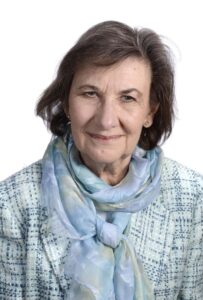It’s Srebrenica Memorial Week (5 -11 July). This year is particularly poignant as it marks the 25th anniversary of the Srebrenica genocide.
Over 8,000 Bosnians, mainly Muslim men and boys were massacred because of their faith during the Bosnian war. The genocide at Srebrenica is the largest incidence of mass-murder in Europe since World War Two.
The theme for this year is ‘Every Action Matters’ which seeks to show that the action of one individual does matter, and that they can achieve a great deal however small their action may initially appear. We can all take a moment this week not only to reflect on the horrors of the 11 July 1995 but also to reflect on our own behaviour and take responsibility for our actions and the impact they may have on someone else.
As recent events have shown, it’s now more important than ever for us to come together – no matter of our background – to celebrate diversity and challenge stereotypes, prejudice and discrimination that may exist.
Message from Cllr Pauline Batstone – Chairman of Dorset Council

A flag is flying over County Hall this week in memory of all those who died or suffered in the Srebrenica area in Eastern Bosnia 25 years ago, described by Kulfi Anan as “The worst crime on European soil since the Second World War”. It indicates our commitment that this should never happen again.
As a reminder, on 11 July 1995, Bosnian Serb forces, led by General Ratko Mladić overran and captured the town of Srebrenica which had been declared a UN Safe Area. In the days following, more than 8,000 Bosnian Muslim men and boys were systematically murdered and buried in mass graves. Thousands of women, children and the elderly were forcibly deported. Srebrenica was a culmination of a campaign of ‘ethnic cleansing’ used by Bosnian Serb forces during the conflict. This was implemented to achieve the aim of a ‘Greater Serbia’, free from non-Serbs, Serbs being Orthodox Christians.
Throughout Bosnia, between 20,000-50,000 women and girls suffered sexual violence, a weapon of war used to systematically ethnically cleanse the region and terrorise the populace. Concentration camps were established in the Prijedor area, and many Bosnian Muslims were forced from their homes to be internally displaced or become refugees.
We are flying the flag to remind us of the words of the late Kofi Annan, the former Secretary-General of the United Nations who later acknowledged ‘the cardinal lesson of Srebrenica is that a deliberate and systematic attempt to terrorise, expel or murder an entire people must be met decisively with all necessary means’.
This is echoed by the late Elie Wisel, a survivor of the Holocaust who said: ‘We must always take sides. Neutrality helps the oppressor, never the victim. Silence
encourages the tormentor, never the tormented. Sometimes we must interfere. When human lives are endangered, when human dignity is in jeopardy, national borders and sensitivities become irrelevant.
Wherever men or women are persecuted because of their race, religion, or political views, that place must – at that moment – become the centre of the universe’.
Dorset is seen as a rural idyll but within that idyll are those of other races and cultures whose lives are not of the easiest and who still live on the fringes of our society. Our new Dorset Council must continue to work to ensure our diverse society is an inclusive and happy one.

